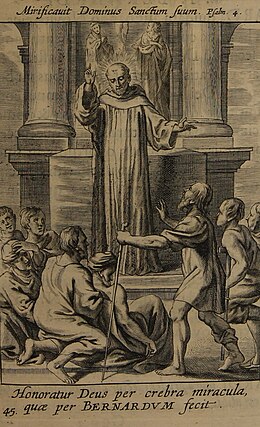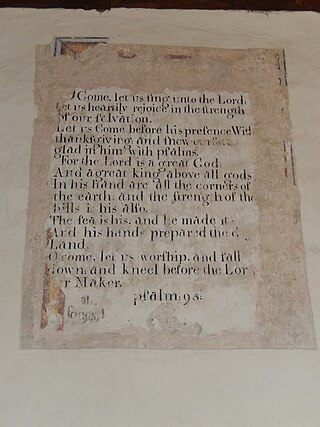
Psalm 95 is the 95th psalm of the Book of Psalms, beginning in English in the King James Version: "O come, let us sing unto the LORD: let us make a joyful noise to the rock of our salvation". The Book of Psalms starts the third section of the Hebrew Bible, and, as such, is a book of the Christian Old Testament. In the slightly different numbering system in the Greek Septuagint version of the Bible, and in the Latin Vulgate, this psalm is Psalm 94. In Latin, it is known as "Venite exultemus" or simply "Venite". The psalm is a hymn psalm, one of the Royal psalms, praising God as the King of His people. Psalm 95 identifies no author, but Hebrews 4:7 attributes it to David. The Vulgate also names David as the author.
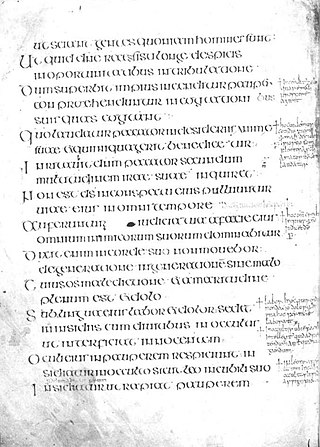
Psalm 9 is the ninth psalm of the Book of Psalms, beginning in English in the King James Version: "I will praise thee, O LORD, with my whole heart; I will shew forth all thy marvellous works." In Latin, it is known as "Confitebor tibi, Domine". The topic of the psalm is that the success of evil is only temporary, and in the end, the righteous will endure. Psalm 10 is considered part of Psalm 9 in the Greek Septuagint and in most pre-Reformation Christian Bibles. These two consecutive psalms have the form of a single acrostic Hebrew poem.

Psalm 42 is the 42nd psalm of the Book of Psalms, often known in English by its incipit, "As the hart panteth after the water brooks". The Book of Psalms is part of the third section of the Hebrew Bible, and a book of the Christian Old Testament. In the Hebrew Bible, Psalm 42 opens the second of the five books (divisions) of Psalms, also known as the "Elohistic Psalter" because the word YHWH is rarely used and God is generally referred to as "Elohim".

Psalm 3 is the third psalm of the Book of Psalms, beginning in English in the King James Version: "Lord, how are they increased that trouble me!". In Latin, it is known as "Domine quid multiplicati sunt". The psalm is a personal thanksgiving to God, who answered the prayer of an afflicted soul. It is attributed to David and relates in particular to the time when he fled from his son Absalom.
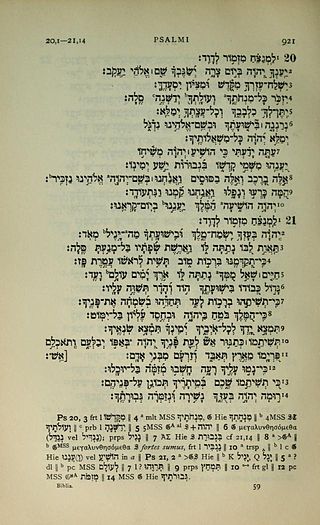
Psalm 20 is the 20th psalm of the Book of Psalms, beginning in English in the King James Version: "The LORD hear thee in the day of trouble". The Book of Psalms is part of the third section of the Hebrew Bible, and a book of the Christian Old Testament. In the slightly different numbering system used in the Greek Septuagint and Latin Vulgate translations of the Bible, this psalm is Psalm 19. In Latin, it is known by the incipit, "Exaudiat te Dominus". The psalm is attributed to David. This psalm and the following one are closely related: they are both liturgical psalms: the first is an intercession, the second is a thanksgiving; in both, the king is the prominent figure.
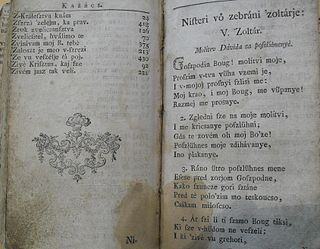
Psalm 5 is the fifth psalm of the Book of Psalms, beginning in English in the King James Version: "Give ear to my words, O LORD, consider my meditation". In Latin, it is known as "Verba mea auribus percipe Domine". The psalm is traditionally attributed to David. It reflects how the righteous man prays for deliverance not only for freedom from suffering, but to allow himself to serve God without distraction. The New King James Version entitles it "A Prayer for Guidance".
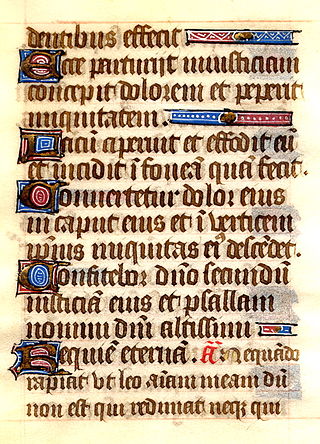
Psalm 7 is the seventh psalm of the Book of Psalms, beginning in English in the King James Version: "O LORD my God, in thee do I put my trust: save me from all them that persecute me, and deliver me". In Latin, it is known as "Domine Deus meus in te speravi". Its authorship is traditionally assigned to King David. The message in the psalm is that the righteous may seem weak, but ultimately will prevail against the wicked.
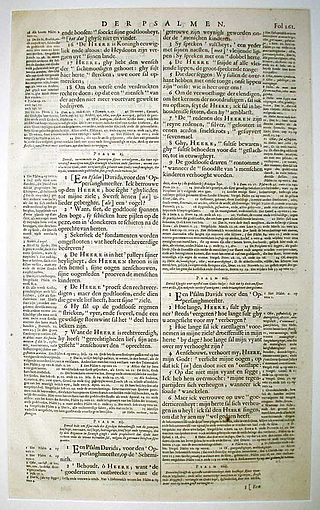
Psalm 10 is the tenth psalm of the Book of Psalms, beginning in English in the King James Version: "Why standest thou afar off, O LORD? why hidest thou thyself in times of trouble?" In the Greek Septuagint and the Latin Vulgate, it is not an individual psalm but the second part of psalm 9, "Ut quid Domine recessisti". These two consecutive psalms have the form of a single acrostic Hebrew poem. Compared to Psalm 9, Psalm 10 is focused more on the individual than the collective human condition.
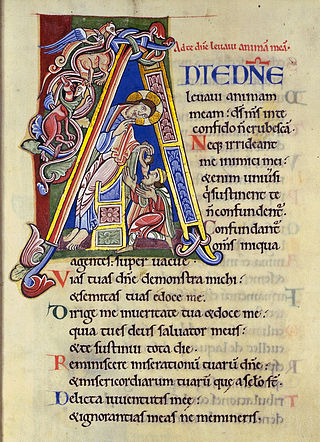
Psalm 25 is the 25th psalm of the Book of Psalms, beginning in English in the King James Version: "Unto thee, O LORD, do I lift up my soul.". The Book of Psalms is part of the third section of the Hebrew Bible, and a book of the Christian Old Testament. In the slightly different numbering system used in the Greek Septuagint and Latin Vulgate translations of the Bible, this psalm is Psalm 24. In Latin, it is known as "Ad te Domine levavi animam meam". The psalm, attributed to David, has the form of an acrostic Hebrew poem.

Psalm 32 is the 32nd psalm of the Book of Psalms, beginning in English in the King James Version: "Blessed is he whose transgression is forgiven". The Book of Psalms is part of the third section of the Hebrew Bible, and a book of the Christian Old Testament. In the slightly different numbering system used in the Greek Septuagint and Latin Vulgate translations of the Bible, this psalm is Psalm 31. In Latin, it is known by the incipit, "Beati quorum". The psalmist expresses the joy of being released from great suffering.

Psalm 39 is the 39th psalm of the Book of Psalms, beginning in English in the King James Version: "I said, I will take heed to my ways, that I sin not with my tongue". The Book of Psalms is part of the third section of the Hebrew Bible, and a book of the Christian Old Testament. In the slightly different numbering system used in the Greek Septuagint and Latin Vulgate translations of the Bible, this psalm is Psalm 38. In Latin, it is known as "Dixi custodiam vias meas". It is a meditation on the fragility of man before God, ending in a prayer for a peaceful life.

Psalm 140 is the 140th psalm of the Book of Psalms, beginning in English in the King James Version: "Deliver me, O LORD, from the evil man". In the slightly different numbering system used in the Greek Septuagint version of the Bible, and the Latin Vulgate, this psalm is Psalm 139. In Latin, it is known as "Eripe me Domine ab homine malo". It is part of the final Davidic collection of psalms, comprising Psalms 138 to 145, which are specifically attributed to David in their opening verses. It describes putting one's trust in God while threatened with evil. The New King James Version entitles it a "Prayer for Deliverance from Evil Men".

Psalm 128 is the 128th psalm of the Book of Psalms, beginning in English in the King James Version: "Blessed is every one that feareth the LORD; that walketh in his ways". In the slightly different numbering system used in the Greek Septuagint and the Latin Vulgate, this psalm is Psalm 127. In Latin, it is known as "Beati omnes qui timent Dominum".

Psalm 54 is the 54th psalm of the Book of Psalms, beginning in English in the King James Version: "Save me, O God, by thy name, and judge me by thy strength". In the slightly different numbering system used in the Greek Septuagint and Latin Vulgate translations of the Bible, this psalm is Psalm 53. In Latin, it is known as "Deus in nomine tuo salvum me fac", Attributed to David, it was written for one who finds oneself betrayed by a friend.
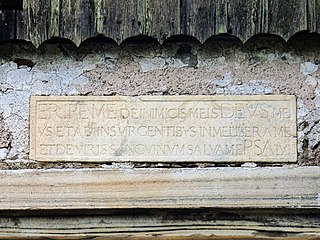
Psalm 59 is the 59th psalm of the Book of Psalms, beginning in English in the King James Version: "Be merciful unto me, O God, be merciful unto me". In the slightly different numbering system of the Greek Septuagint version of the Bible and the Latin Vulgate, this psalm is Psalm 56. In Latin, it is known as "Eripe me de inimicis meis Deu". It is described as "a prayer composed when Saul sent messengers to wait at the house in order to kill him", and commentator Cyril Rodd describes it as a "vigorous plea for the destruction of the psalmist's enemies".

Psalm 77 is the 77th psalm of the Book of Psalms, beginning in English in the King James Version: "I cried unto God with my voice, even unto God with my voice; and he gave ear unto me". In the slightly different numbering system used in the Greek Septuagint and Latin Vulgate translations of the Bible, this psalm is Psalm 76. In Latin, it is known as "Voce mea ad Dominum clamavi".

Psalm 81 is the 81st psalm of the Book of Psalms, beginning in English in the King James Version: "Sing aloud unto God our strength". In the slightly different numbering system used in the Greek Septuagint and Latin Vulgate translations of the Bible, this psalm is Psalm 80. In Latin, it is known as "Exultate deo adiutori nostro". It is one of the 12 Psalms of Asaph. Its themes relate to celebration and repentance. In the New King James Version its sub-title is "An Appeal for Israel's Repentance".
Psalm 86 is the 86th psalm of the Book of Psalms, beginning in English in the King James Version: "Bow down thine ear, O Lord, hear me: for I am poor and needy". In the slightly different numbering system used in the Greek Septuagint and Latin Vulgate translations of the Bible, this psalm is Psalm 85. In Latin, it is known as "Inclina Domine". It is attributed to David.
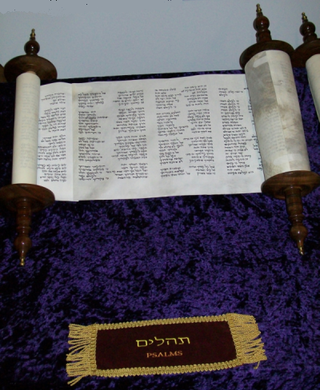
Psalm 116 is the 116th psalm of the Book of Psalms, beginning in English in the King James Version: "I love the LORD, because he hath heard my voice and my supplications". It is part of the Egyptian Hallel sequence in the Book of Psalms.

Psalm 61 is the 61st psalm of the Book of Psalms, beginning in English in the King James Version: "Hear my cry, O God; attend unto my prayer.". In the slightly different numbering system of the Greek Septuagint version of the Bible and the Latin Vulgate, this psalm is Psalm 60. In Latin, it is known as "Exaudi Deus". The psalm is to be played on a neginah or stringed instrument. The Psalm is attributed to King David. The Jerusalem Bible calls it a "prayer of an exile".
